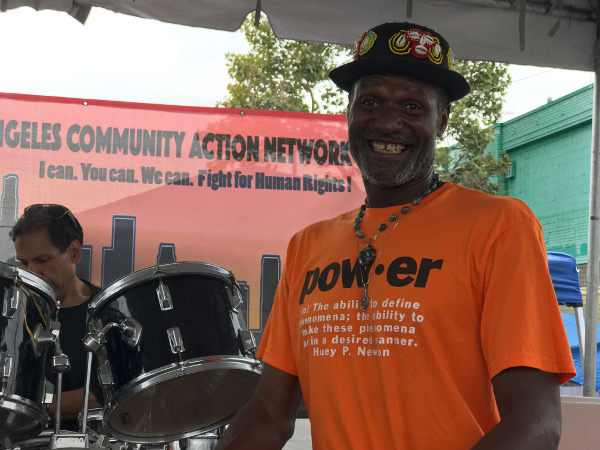
Wondering how YOU would react if a city ordinance limited your personal property to what can fit in a 60-gallon Hefty bag, and is it only for homeless residents in Los Angeles?
That’s right, one TRASH bag. That effectively MEANS no tent is allowed BY LAW.
In Los Angeles, the City has recently settled a 2016 lawsuit challenging the 60-gallon Hefty bag ordinance. The settlement does not change the 60-gallon restriction, but says that now only on “Skid Row” the City must store and protect any personal property they confiscate when citing the 60-gallon restriction. But areas outside of Skid Row will not be required to change their practice of confiscating and throwing away people’s personal property. In these areas of the city, they say they do not have “capacity” to store and protect people’s belongings when they confiscate them, and are using this claimed shortage of “capacity” to continue to violate people’s constitutional rights.
And it isn’t only in Los Angeles.
In addition, in most cities you also can’t check in to any of the few “homeless shelters” available with more than one trash bag worth of possessions, either. They do have that restriction at MANY of the shelters across the country, and although the City funds and refers people to these shelters, they will say it’s an individual policy of each shelter over which they have no control. Where are people with NO MONEY supposed to store their tent, survival gear, and all their worldly possessions so they can even check in at a homeless shelter? Oh I get it, no biggie. … Just get rid of it. If not, the City’s cops and “homeless outreach” workers will dispose of it for you.
They pass these ordinances and set these “policies” knowing full well they are unconstitutional. It is then the individual’s problem to challenge the ordinance in a lawsuit. And the case in Los Angeles has been in the court since 2016. Three years of continuing to STEAL and throw away people’s personal property in the meanwhile, leaving them with nothing to survive or start from.
In all the states and cities, people with no permanent address are effectively not viewed or treated as “citizens” and many local ordinances and restricted access to public services attest to this general view … but “not a citizen” isn’t written in the law. However, the view of government agencies is “not a resident” of their jurisdiction. That can very much get in the way of accessing public services, even eligibility for housing assistance—and also obtaining ID and registering to vote, for example. Lack of “residency” status is a barrier to accessing all kinds of things, including employment, something that people with addresses and the status of “residency” often don’t understand or even think about.
